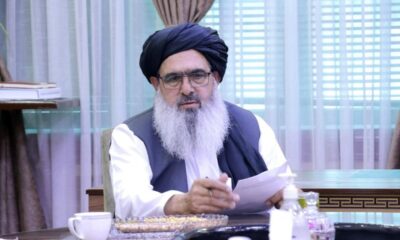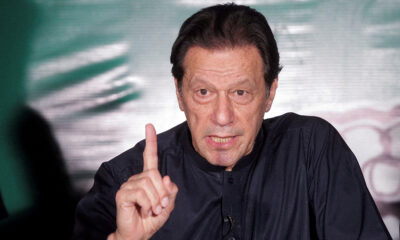Latest News
U.S. authorizes some transactions with IEA to keep aid flowing to Afghanistan
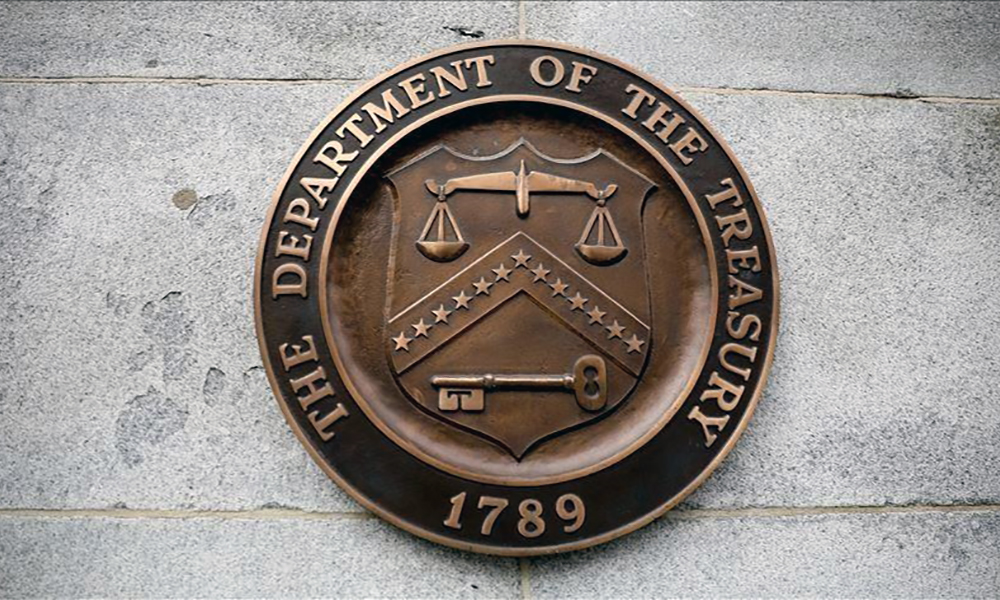
The United States formally exempted on Wednesday U.S. and U.N. officials doing permitted business with the Islamic Emirate of Afghanistan [IEA] from U.S. sanctions to try to maintain the flow of aid to Afghanistan as it sinks deeper into a humanitarian crisis, Reuters reported.
According to Reuters it was unclear, however, whether the move would pave the way for proposed U.N. payments of some $6 million to the IEA for security.
Reuters on Tuesday exclusively reported a U.N. plan to subsidize next year the monthly wages of IEA-run Interior Ministry personnel who guard U.N. facilities and to pay them monthly food allowances, a proposal that raised questions about whether the payments would violate U.S. sanctions.
The Treasury Department declined to say whether the new license would exempt the proposed U.N. payments from U.S. sanctions on the IEA.
Having designated the IEA as a terrorist group for years, Washington has ordered its U.S. assets frozen and barred Americans from dealing with them, read the report.
The Treasury on Wednesday issued three general licenses aimed at easing humanitarian aid flows into Afghanistan.
According to Reuters two of the licenses allow U.S. officials and those of certain international organizations, such as the United Nations, to engage in transactions involving the IEA or Haqqani Network for official business.
A third license gives non-governmental organizations (NGOs) protection from U.S. sanctions on the IEA and the Haqqani Network for work on certain activities, including humanitarian projects.
According to the report a senior U.S. administration official said the Islamic Emirate [IE] would have to take action to prevent Afghanistan’s economy from contracting further.
“What we can attempt to do, what we’re going to work to do, is to mitigate the humanitarian crisis by getting resources to the Afghan people, and these general licenses will allow us to allow organizations that are doing this work to do exactly that,” the official told reporters.
The top Republican on the U.S. House of Representatives Foreign Affairs Committee criticized the decision by Democratic President Joe Biden’s administration, Reuters reported.
The exemption “could result in using American taxpayer funds to reward, legitimize and enable the same IEA that took power by force and has shown no interest in abiding by international norms,” Representative Michael McCaul said in a statement.
Afghanistan’s economic crisis accelerated after the IEA seized power in August, as the former Western-backed government collapsed and the last U.S. troops withdrew.
The United States and other donors cut financial assistance, and more than $9 billion in Afghanistan’s hard currency assets were frozen, Reuters reported.
The United Nations says nearly 23 million people – about 55% of the population – are facing extreme levels of hunger, with nearly 9 million at risk of famine as winter takes hold, read the report.
“We will continue to support efforts by our partners to scale up assistance and deliver necessary relief during this moment of particular need,” U.S. Secretary of State Antony Blinken said in a statement.
In a separate bid to address the crisis, the U.N. Security Council passed a resolution exempting donors, aid groups and financial institutions involved in humanitarian assistance from U.N. asset freezes on leaders of the IEA and associated entities.
The exemption is “solely for the provision of humanitarian assistance and other activities that support basic human needs in Afghanistan which the council will review in one year,” Jeffrey DeLaurentis, a senior adviser to the U.S. mission to the United Nations, said in urging approval of the measure, Reuters reported.
Latest News
Afghanistan signs 30-year deal for marble mining in Daikundi

The Ministry of Mines and Petroleum of Afghanistan has signed a 30-year agreement with a private company to extract marble in Daikundi province.
Under the contract, the company will invest AFN 283 million in exploring and mining marble at the “Mesh-Uliya” site, spanning 16.74 square kilometers in central Daikundi.
Hedayatullah Badri, Minister of Mines and Petroleum, stated that the marble will be processed domestically before being exported abroad. He added that the Mesh-Uliya project is expected to create around 200 jobs, and the company is committed to supporting local communities through social initiatives.
Economic experts highlight that such investments, especially those focusing on domestic processing, are crucial for job creation, boosting exports, and strengthening the national economy. Analysts further note that the project will improve local infrastructure, expand social services, and enhance the economic and social well-being of Daikundi residents.
Since the return of the Islamic Emirate to power, efforts to develop Afghanistan’s mining sector have intensified, with multiple contracts signed in areas including cement, copper, iron, and lapis lazuli, involving both domestic and international companies.
Latest News
Passenger bus veers off Salang Highway, leaving 5 dead, dozens injured
Latest News
Major fire in Mandawi Kabul market contained, extensive losses prevented
Local shopkeepers said the fire broke out around 4 a.m.
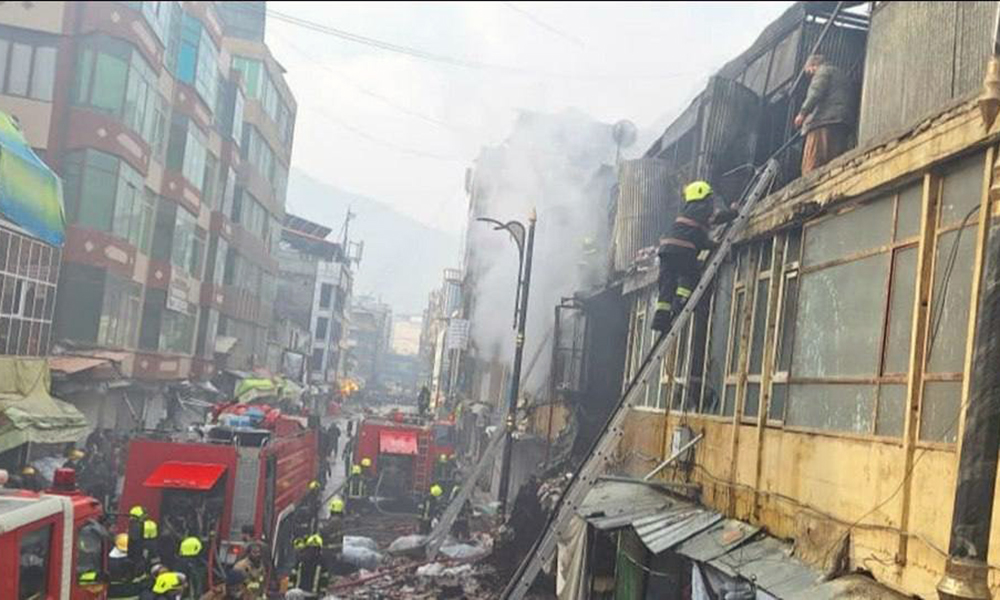
The Ministry of Interior reported that personnel from the General Directorate of Firefighting and Emergency Response successfully prevented the further spread of a fire at Mandawi market on Kabul early Sunday morning.
Abdul Mateen Qani, spokesperson for the ministry, said that the fire destroyed 10 storage facilities and 8 shops. He added that initial losses are estimated at around $700,000, but timely action by firefighting personnel saved property worth approximately $2.2 million.
Qani explained that the fire was caused by an electrical short circuit. He praised the rapid and effective containment operations, which prevented more extensive damage.
Local shopkeepers said the fire broke out around 4 a.m.
-

 International Sports5 days ago
International Sports5 days agoILT20: Abu Dhabi Knight Riders end Desert Vipers’ unbeaten run in dramatic one-run win
-

 Latest News3 days ago
Latest News3 days agoAfghan border forces prevent illegal entry of hundreds into Iran
-

 Latest News2 days ago
Latest News2 days agoPakistan summons Afghan diplomat over deadly attack in North Waziristan
-

 Business5 days ago
Business5 days agoMahirood Customs leads Iran’s exports to Afghanistan
-
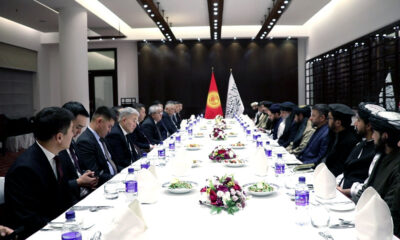
 Latest News5 days ago
Latest News5 days agoAfghanistan, Kyrgyzstan discuss expanding trade and economic cooperation
-

 Latest News3 days ago
Latest News3 days agoJapan allocates nearly $20 million in humanitarian aid for Afghanistan
-

 Latest News2 days ago
Latest News2 days agoKarzai urges reopening of girls’ schools and universities for Afghanistan’s bright future
-

 Latest News2 days ago
Latest News2 days agoAfghan health minister calls for medical cooperation between Kabul and New Delhi


